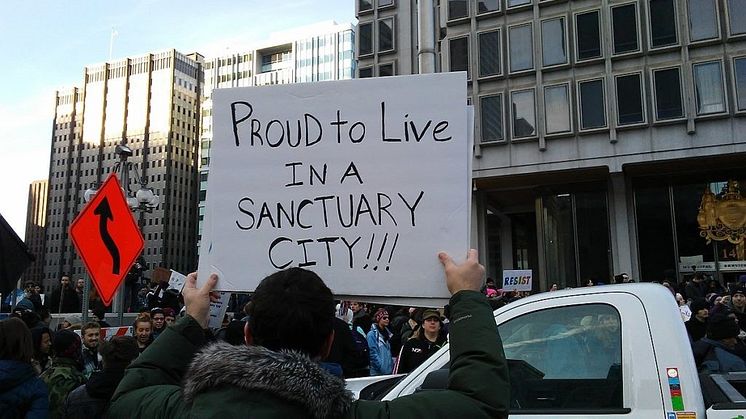
Blogginlägg -
Local Governments: between multiculturalism and ethnic nationalism
Author: Benjamin Gonzalez O’Brien, Professor of Political Science, San Diego State University and one of the professors attending ICLD Local Democracy Academy in Umeå 10-14th of June and will discuss the role of Local Governments to address migration under the theme of “Global migration: rebel cities and communities in search of inclusion”.
"Over the last few decades, global immigration and migration patterns have increasingly led to divisive debates around economics and culture, as well as fear-mongering about crime and terrorism. While immigration has always been a fraught issue, the rise of anti-immigrant parties globally suggests were are in a moment of realignment when countries must decide if they will embrace multiculturalism, or a backwards-looking form of ethnic nationalism.
My own country, the United States, seems to have taken on a leadership role not in the inclusive multiculturalism that has served as a dominant national myth, but instead in the anti-immigrant movement worldwide. The Trump administration’s motto of “America First” and the pledge to “Make America Great Again” may be dressed up as economic policy but at their root they are based on a vision of the United States where Anglo-Protestantism is America’s unchallenged cultural identity and where the only immigrants welcomed are those who fit this vision of the nation.
Across Europe, right-wing populist parties, often running on an anti-immigrant platform, have seen renewed success in regional, national, and EU-level elections. Anti-immigrant attitudes, and the willingness of parties like the UK Independence Party (UKIP) to capitalize on these feelings, also played a significant role in the vote for Brexit.
So, what are Rebel Cities doing?
Often the focus of researchers is on these big national changes. However, while these are important, they overlook the significance of the local context in determining immigrant inclusion in the social/cultural fabric of the nation. Rebel cities, exemplified in the United States by sanctuary cities like Chicago and Seattle, have sought to welcome immigrants, legal or illegal, despite the national climate and the rhetoric of the President. They have sought to challenge their role in the enforcement of immigration policy which they see as opposed to our very identity as a nation, barring local officials from cooperating with federal authorities in enforcement operations or from collecting immigration information that could lead to deportation. These rebel cities are attracting renewed attention as they seek to redefine the immigration debate and challenge the president and federal government.
While not every city is as openly rebellious as American sanctuary cities, every locality worldwide struggles with the question of how best to integrate the various communities their residents belong to.
The Local Democracy Academy will be a great opportunity to learn about research from around the world on the how localities seek to further the inclusion and incorporation of immigrant and migrant communities.
Some of scholars will focus on the negative effects policies can have on inclusion, as reflected in the volume of 911 calls from immigrant communities (Collingwood), how urban peripheries try to address immigration-related conflicts (Trivino-Salazar), or the spatial strategies localities employ to manage the arrival of newcomers to the community (Ezgi). Others will consider differences in the reception of refugees at “hotspot” locations in the Greek islands that some have compared to detention facilities (Bousiou) or the role played by local governments in Turkey in providing housing for immigrants/refugees (Akdemir). Lastly, some research will examine how former emigrants draw on this experience in governing their communities as mayors (Faye).
This research will help provide a holistic view of the strategies employed at the local level to further immigrant inclusion, as well as some of the barriers to inclusion caused by policies passed at other levels of government.
Benjamin Gonzalez O’Brien

